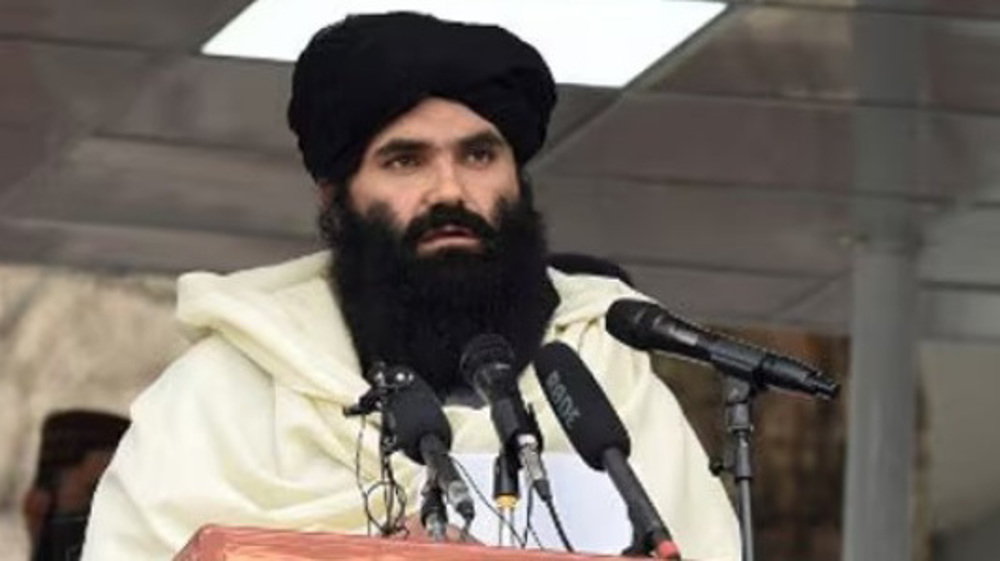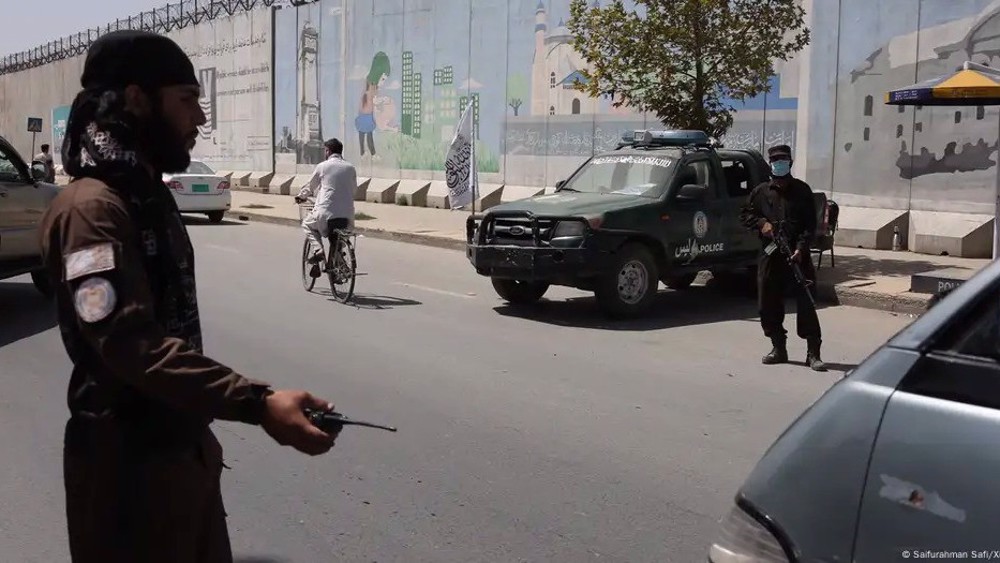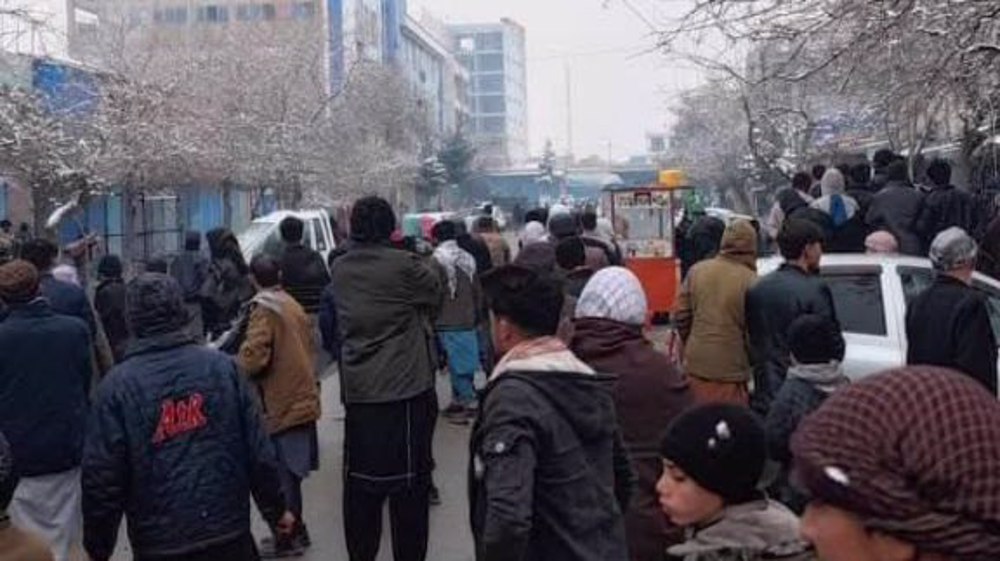Afghanistan observes day of national mourning after Kabul attack
Afghanistan is observing a day of national mourning after a Daesh-claimed bomb attack left 80 dead during a demonstration in the capital, Kabul.
People held funeral processions on Sunday for those killed at the Deh Mazang Square during a peaceful demonstration by Shia Hazaras against a controversial power line project.
The Daesh Takfiri terrorists claimed responsibility for the bombing.
According to Afghan authorities, at least 231 people were also wounded, some in critical condition, in the Saturday attack.
Police said one of the attackers successfully detonated his explosives, while the second one only managed to defectively explode himself. A third assailant was shot dead by security forces before he could detonate his vest.
President Ashraf Ghani condemned the bombings and said he was “deeply saddened” by the terrorist attack.
President Ghani’s office, however, noted that the organizers of the demonstration had been warned to cancel the protest after intelligence said that an attack was likely.
Daud Naji, from the Enlighten Movement that arranged the protest, said the government told them that there was a “heightened risk” of attack, and that they had cancelled nine of the 10 planned routes.

He added that the funeral procession would go ahead despite the government’s 10-day ban on all protests and public gatherings.
The power line project, which is scheduled to be implemented by 2018, would see the establishment of a 500-kilovolt transmission line from Turkmenistan to Kabul.
Originally, the line was to pass through the impoverished provinces of Bamyan and Wardak, which host large Hazara populations. However, it was later rerouted, with the government alleging that the redesigned course cut costs.
The Hazara say they want the line to pass through Bamyan and Wardak, west of Kabul, where many of them live, to ensure their power supply.
The Hazara community, the poorest of Afghanistan’s ethnic groups, accounts for about nine percent of Afghanistan’s population and is the country’s third-largest minority.

Taliban says US has lifted $10 million reward for information on deputy chief Haqqani

Deadly bombing attack targets Taliban ministry building in Kabul

Daesh claims deadly bombing attack in northern Afghanistan
VIDEO | Massive Friday protests in Yemen: Call for end to US, Israeli aggressions
Leaked docs. expose Israeli censorship campaign to erase pro-Palestinian content online
Yemen targets Israeli military sites in Jaffa in retaliation for Israel’s Gaza genocide
Leaked emails show German officials pressing staff into deporting pro-Palestine activists
Thousands of Pakistanis rally to censure Israeli crimes in Gaza
‘Gaza is not alone’: Yemenis hold million-man protests to show solidarity with Palestinians
VIDEO | Iranians rally to condemn Israeli atrocities in Gaza
VIDEO | Record surge in Israeli home demolitions across occupied West Bank










 This makes it easy to access the Press TV website
This makes it easy to access the Press TV website